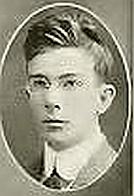After my father died, I was terrified of one day being left an orphan. I’m sure that fear influenced my depiction of Charlie Mears, the narrator of Forsaken.
For the past few winter terms at Elon University I taught a course boldly entitled, “Write an American Best Seller.”
I would tell students the name was the course’s first lesson in irony; that if I knew how to teach someone to write a best seller, I wouldn’t be standing there talking and they wouldn’t be sitting there listening. We’d all be elsewhere, tapping furiously on our laptops.
But by studying the history of best-selling narratives, we saw consistent elements and themes.
One element is the protagonist. He or she must be competent. Likable. And flawed.
Lately I’ve been thinking about a flaw in my own character. There are many, of course, but this one gnaws at me, and I see it expressed in my protagonists.
It begins with my father.
Mostly I was afraid of him. He never hurt me physically that I remember. But his unpredictable behavior as an alcoholic exacted an emotional and moral toll on my mother and my sister. And on me, too.
I’ve never thought of him as someone to love. Oh, there are a couple warm and fuzzy memories. Him driving us to the airport to spot airplanes. Or letting me wade in a high-country lake with wild trout spawning at my feet.
I was nine years old when he died of cirrhosis of the liver. I don’t remember crying at his funeral, though I’m sure I did, from fear of the unknown, if nothing else.
I do remember as I changed into my farm clothes after the ceremony my mother sitting me in a chair and telling me I was now the man of the family.
I had no idea what it meant to be a man and no one to go to to learn it from. Already a loner, I withdrew even more deeply into myself and into the natural world I revered.
This personal character trait got translated into protagonists who have difficulty feeling love. Intimacy is not easy for them. They are reticent to express their feelings about most everything.
Some readers have commented on this flaw. They want my protagonists to say more, to reveal more.
What these protagonists feel, what is hard for them to express, is longing.
I will never know a father’s love. I will never know loving a father.
So we journey on, my protagonists and I, searching.

